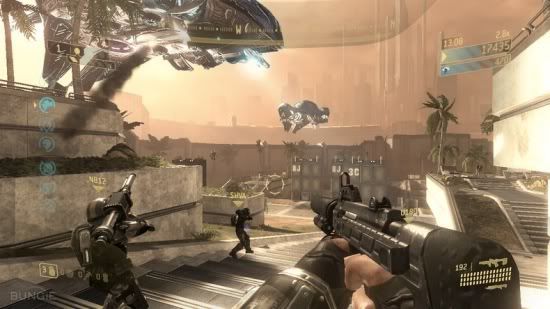This post has not been edited by the GamesBeat staff. Opinions by GamesBeat community writers do not necessarily reflect those of the staff.
As Bitmob Writer Rus McLaughlin points to in Press X to win, I don't want games to be harder, I want immersion and interaction.
Yes, "interaction" is a bad word these days — synonymous with flapping your arms at the Xbox Kinect and waggling your Wii. Together, the industry is perpetuating a fundamental misunderstanding of the term — one that usually ends with competitive adults elbowing their children in the ear during a game of virtual tennis.
As McLaughlin says, "At its best, the way a game controls doesn't just let you push a funny man around an artificial world…it pushes you to interact with it on the same level that funny man does."
As a gamer, writer, and communications student, I am intrigued by how the late Canadian media theorist, Marshal McLuhan, and his maxim, "the medium is the message," helps explain McLaughlin's dilemma.

Fun…until you burst your daughter's eardrum.
Because it's this overlooked idea that dooms developers to epic fail. On one hand, Naughty Dog tells us that we're controlling Drake's incredible acrobatics, but the medium reveals that we're just "pressing X to win."
Let's take this idea further and apply it to story, romance, and the virtual world itself. (By the way, don't dismiss McLuhan just because he died in 1980; he predicted the invention of the Internet…thirty years before it was invented).
Immersive story
Writers can't speak louder than game designers. Gears of War fails as an emotional narrative not because its writers were picked from Mrs. Wormwood's grade 7 English class but because the game's protagonists are emotionally stunted linebackers.
But let's take the medium message even further; for example, first-person shooters: How do you feel empathy for a character's forearms? That's the true "story," and it's not about a supersoldier but rather "Green Forearms Gripping a Rifle 2."
Interactive action
Dolphins up close are hideous. They have these nasty looking scars worse than Mr. Tickles after a midnight cat fight. But a trainer will explain the dolphin's only means of communication is teeth. That's right — God's smartest creatures say hello by biting each other's faces.
Now, look closely. How are you interacting with this imaginary video-game world? Do you have a gun? Do you spend a lot of time shooting this gun? That's how you interact with the world. That's why you're gut reaction is to shoot those fleeing civilians in Call of Duty even though your friends and family are known to be civilians. Or let's say you want to direct a team mate toward an munitions drop in Halo's firefight? Don't you fire off a few rounds off their face to get their attention? Or shoot the ground to point them in the right direction? These games essentially make us dolphins because we chew on anything and everything to make our mark.

Halo: Green Forearms Evolved.
Immersive romance
Fable 2 was romantic. A world of eligible bachelors and bachelorettes — some with STDs and others with more. But soon you find the most pleasing, available non-player character model and settle down and have a few kids. The boy you name Sam because it's endearing and easy to type without a keyboard, and you learn to love this new family. You even start to look forward to coming home, imagining a cooked meal waiting by the fire, a warm bed to share, and recounting your adventurers to your wife. It feels like love, right?
Now, what if I asked you to choose between your family and your weapon? Yes, I mean your favorite sword that you looked up on the wiki and memorized its stats. That's the true love story going on here: the one between a gamer and his weapons.
You love the way they look after discharging a bullet or swinging from your side. You admire their forms when reloading or the sound they make when unsheathed. You love how they make you feel: powerful, confident, and appreciated. Only you understand me, Legendary Dragon Pistol of +10 Accuracy.
Interactive world
Don't call it a city, Bethesda. I know Skyrim's "cities" of 39 unique characters with individual personalities is a triumph — many of them with quest lines or tasks waiting to be fulfilled by the player. But even the largest settlement with denizens remotely fulfilling the qualifications of "not being a tree trunk" would still only be classified as an extended family gathering.
And when you start creating "city" streets filled with brain dead pedestrians a la Grand Theft Auto capable of only uttering an exclamation or robotic threat after being run-over by a half-ton, you're doing no better.
At this point in videogame history, claiming any game takes place in a city is a fat, ugly lie. But one we all want to believe.
